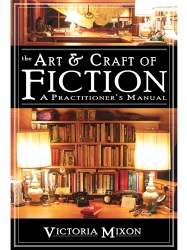Many years ago I used to hang out all the time in the bars of San Luis Obispo, California. A good friend and I were sitting on the curb outside our favorite dive with our feet in the gutter one night talking deep in our cups the talk of life.
“Victoria,” he finally said, “we’re poet drunks.”
“Mark,” I said solemnly, “we’re not poets.”
It wasn’t strictly true—I was, in fact, a poetry major at Cal Poly State University at that time—but we laughed anyway.
Hemingway hunching over his typewriter with whiskey at his elbow, Faulkner holding court grandly drunk when he came to New York to see his editor, Fitzgerald going so white when the booze hit that Hemingway thought he needed an ambulance, Raymond Carver and his wife and friends hashing over the meaning of love as they drank, Jean Rhys in her borrowed cottage in winter mourning the lost past over a bottle, James Thurber blind and hysterical with delerium tremens at the end of his life, Jack Kerouac deliberately drinking himself to death when the media named him a ‘beatnik’ instead of an artist. . .
We all know the myth.
-
We write to explore our worlds
-
We write to create tribe for ourselves
Probably all of us poor misdirected writers have, at one time or another, walked the streets of midnight alone with our fists in our pockets, our chins in our coat collars, our footsteps ringing in our ears. We’ve all looked through lighted windows as we passed, at life going on inside without us—all the strangers, all the stories, all the gestures and interactions and words and unspoken messages, the devastating secrets that will never be told.
We’ve all wondered about our own isolation, our own internal sargasso seas.
And we’ve taken those images and experiences and questions home with us and tried to work with them in the words on the page, which is the only way some of us know how to work with things.
Yes, the streets outside your house are your world, and if you’re smart you spend some time every week out there with a notebook and pen jotting down descriptions of the people and places and things you see, the telling details of your vivid life.
But then you have to take those notes home and put them them into your stories.
Practice recording life as you live it until you can make it utterly vivid even in stories that well up without your permission from your subconscious.
This is the bedrock of what it means to you to be alive.
Writing is about finding others who see life through the same inexplicable, convoluted, bizarre lenses that we do.
When we go to bars we go to deaden ourselves to the differences between people so that we can feel bonded to pretty much anyone who wanders in and appropriates the barstool next to us.
“I know egxactly what you mean. I have always tripped over my shoelaces too! hic!”
I’ve sworn blood kinship to people I had nothing more in common with than the cheap cans of beer we both happened to have in our hands.
We, as human beings, are truly that desperate for tribe.
But when you stay sober and write fiction, you find extraordinary, magical characters blossoming right out of the pages—people who make jokes you find hilarious, who suffer tragedies that break your heart, who fascinate you in just the way you long to be fascinating, who feel and think and act exactly like you do.
You love them! They totally understand your world.
And the deeper you dig into your own idiosyncratic take on the details and convolutions of life and bestow those unique qualities upon your characters and plots, the more complex and realistic and distinctive they become.
And the more complex and realistic and distinctive they become. . .the more other people—total strangers—recognize them as part of their own tribes.
This is the human glue of fiction.
“The freshest and
most relevant advice
you’ll find.”
—Helen Gallagher,
Seattle P-I
The Art & Craft of Story


